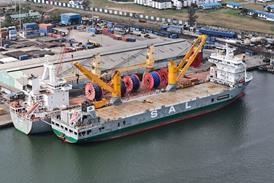While the fundamentals of freight forwarding remain unchanged, the short-term future of the sector will be characterised by the introduction of technologies that unlock value and enhance capability.
That was one of the views put forward by Transport Intelligence (Ti) in its 2018 Global Freight Forwarding report. One of the most visible changes in the industry of late has been the introduction of digital forwarders, marketplaces and spot market platforms, according to Ti.
“Large freight forwarders have realised that online rate quotation and booking platforms are a great way to win SME and ad-hoc business. Simplicity and responsiveness of service are often top of the list of priorities for such customers, which digital forwarding in theory should deliver well. In practice, however, there can be wide discrepancies in service quality across platforms. Both large forwarders and the newer players are continuously evolving their offerings to get ahead of the competition,” said David Buckby, economist at Ti.
Ti also reported that in 2017 the global freight forwarding market grew at its quickest annual pace since 2010. The sector grew by 8 percent year-on-year, driven by strong growth in both air and ocean freight. Ti's forecasts reveal that sea freight is positioned to continue healthy growth over the short to medium-term.
The full report can be purchased here.
















